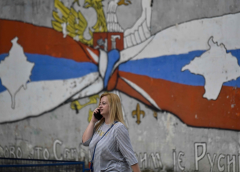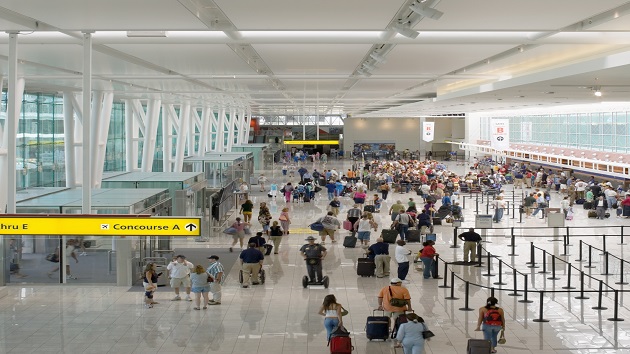
Serbia and Kosovo agree to ease travel restrictions, EU says
[ad_1]
The EU has brokered a deal between Serbia and Kosovo to ease travel restrictions, removing an issue that had raised tensions in the West Balkans, the union’s foreign policy chief Josep Borrell said on Saturday.
“We have a deal,” Borrell wrote on Twitter. “Under the EU-facilitated Dialogue, Serbia agreed to abolish entry/exit documents for Kosovo ID holders and Kosovo agreed to not introduce them for Serbian ID holders.”
The move is symbolic progress in the decades-long dispute over the statehood of Kosovo and the coexistence of Albanians and Serbs, which has led to sporadic violent protests along the border in the past year, despite diplomatic offensives from the US and the EU.
The former Yugoslav province of Kosovo fought a brief war of independence that culminated in Nato air strikes against Belgrade in 1999 as the international community feared Serbia would engage in ethnic cleansing of Albanians in the region, who represent a significant majority of the population.
Kosovo unilaterally broke off from Serbia in 2008. More than 100 nations have recognised its independence but Serbia has refused to accept it, as have several EU and Nato nations including Spain, Greece and Romania.
Top US and EU envoys toured the region this week after the failure of talks in Brussels this month to resolve tensions over Pristina’s decision to demand special entry-exit documents on top of Serb identification documents unless Serbia lifted a similar measure for Kosovars.
The EU and the US moved in lockstep as they applied pressure on Kosovo premier Albin Kurti and Serbian president Aleksandar Vučić.
Kurti confirmed the deal in a Facebook post on Saturday.
“Thank you all for your support and patience, especially in these last four weeks,” he wrote. “The spirit of the principled and equal talks in Brussels is reciprocity. Normalising solutions should have reciprocity within, as good neighbourly relationships imply it.”
The Serbian government’s top official on Kosovo, Petar Petković, said that the deal meant “Serbs in Kosovo will be able to move freely with Serbian identity cards”.
Allowing the reciprocal use of Kosovo identity cards in Serbia, he said, “cannot be interpreted as recognition of unilaterally declared independence of Kosovo [and] does not prejudge the determination of the final status of Kosovo.”
Pristina has bet on its pro-Western credentials to promote speedy accession to Nato and the EU amid the war in Ukraine, while comparing its position with Serbia’s traditional closeness to Russia. Belgrade has rejected that as diplomatic posturing.
But accession is conditional on the normalisation of relations with Serbia, which has been a candidate to join the EU for years.
Vučić has said he expected a deal on the IDs, adding that he would defend the interest of ethnic Serbs who live in Kosovo but reject the authority of Pristina. Prominent Serb politicians have refused to give ground on Kosovo, often calling the country “our province”.
Members of the Serb community in northern Kosovo erected barricades and defied police when Pristina first introduced the rules for the entry-exit documents. Shots were fired with no injuries. Kosovo extended the deadline on applying the document rules by a month to September 1 but insisted on equal treatment of the citizens of both countries.
“Kosovo Serbs, as well as all other citizens, will be able to travel freely between Kosovo & Serbia using their ID cards. The EU just received guarantees from PM Kurti to this end,” Borrell wrote. “This is a European solution. We congratulate both leaders.”
[ad_2]
Source link


